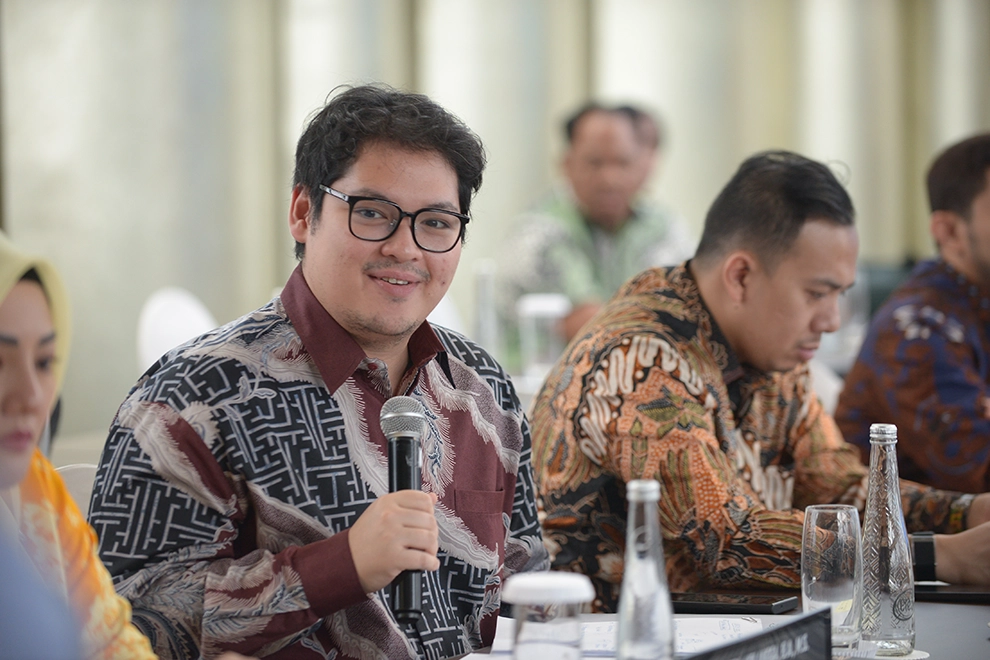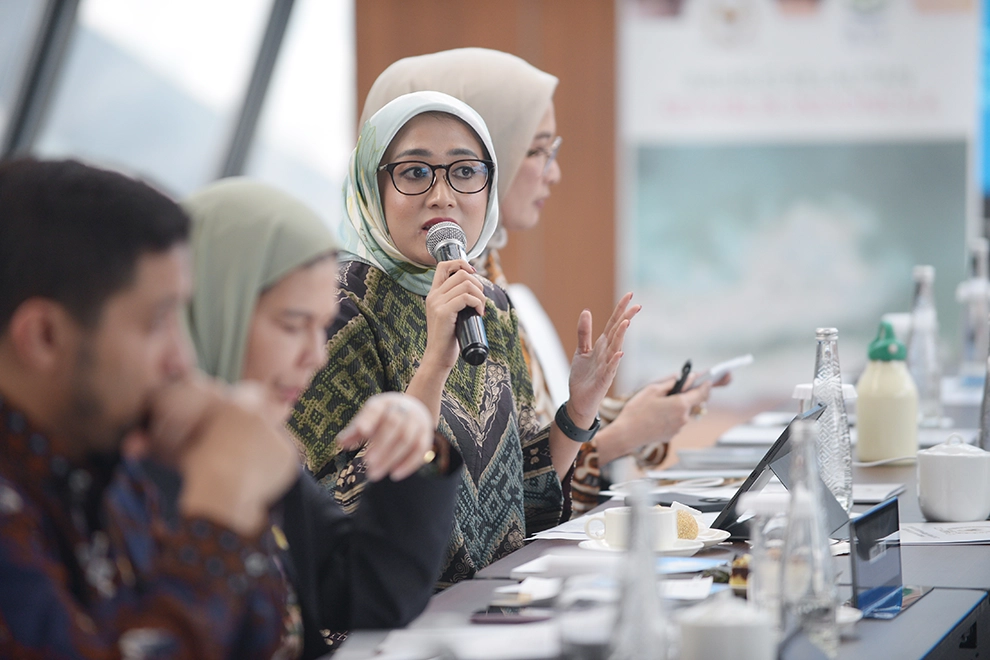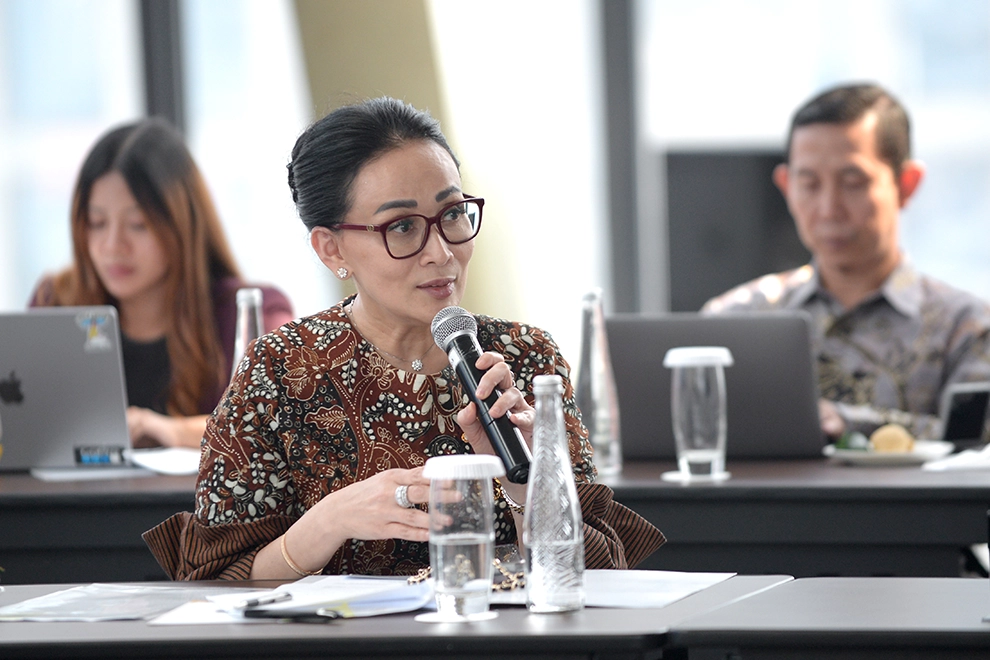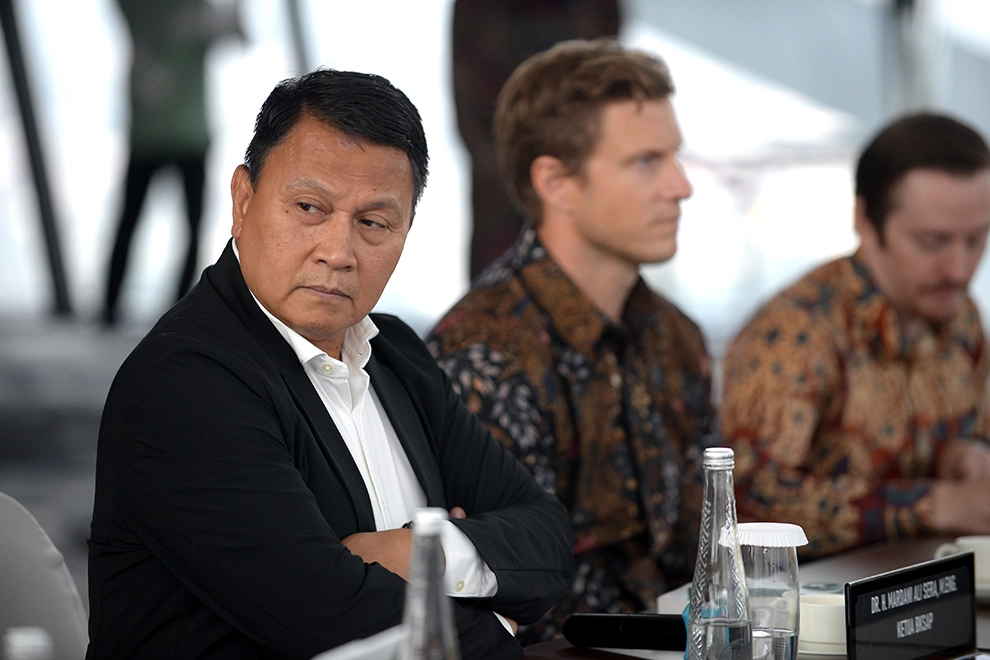The Focus Group Discussion (FGD) on Voter Impact on DPR-RI Conservation Policy was convened in Tangerang, Banten, co-hosted by the Committee for Inter-Parliamentary Cooperation of the Indonesian House of Representatives (BKSAP DPR RI) together with ICCF Indonesia, Secretariat of the Conservation Caucus (Kaukus Konservasi) in the Indonesian House of Representatives. The session presented findings from a 2024 national survey on voter attitudes toward marine conservation, and explored how these insights could inform legislative priorities, fiscal oversight, and political engagement.
Our regional director, Mr. James Ward, opened the event by emphasizing that the survey was designed to connect local communities with leaders in parliament on issues relating to conservation. The Honorable Mardani Ali Sera, Chair of BKSAP and co-chair of the caucus, reaffirmed the need for evidence-driven policymaking, noting:
“The best policies are those grounded in science and evidence. Surveys like this are not just discussion material, but important tools to guide us in making policies that truly serve the public interest.”
Survey Findings
Seth Soderborg (Ph.D in Government, Harvard University), presented results from a survey of 1,650 respondents, showing that:
- An overwhelming majority of voters support marine protection, even when framed as potentially slowing economic development.
- This support is consistent across demographic groups, including urban residents and Gen-X voters.
- Citizens highly engaged in politics are also those most engaged with ocean issues, underscoring the electoral significance of conservation.
Respondents strongly back policy measures such as catch quotas, funding for marine protected areas, support for small-scale fishery cooperatives, and biodiversity promotion.
Parliamentary Reflections

Hon. Ravindra Airlangga (Vice Chair of BKSAP, member of Kaukus Konservasi)
The discussion, moderated by Prof. Burhanuddin Muhtadi (Executive Director of Indikator Politik), provoked active and thoughtful responses from members of parliament.
Hon. Amelia Anggraini (NasDem - Central Java VII) stressed the importance of innovative financing mechanisms such as blue bonds and BLU instruments. Hon. Rina Sa’adah (PKB - West Java X) pointed to the challenge of balancing conservation with fisher livelihoods, citing backlash against gear restrictions like the cantrang ban. Hon. Sigit Purnomo (PAN - DKI Jakarta III) emphasized that conservation should be seen as an investment in the future of fishing communities, not an obstacle. Hon. Eva Monalisa (PKB - Central Java III) stressed the role of media and asked how conservation could be mainstreamed into party manifestos by 2029.
A particularly notable intervention came from Hon. Arzeti Bilbina (PKB, East Java I), who highlighted a concrete example from her constituency:
“In my constituency, mangrove restoration has delivered tangible results — ecosystems are restored and communities benefit. Conservation is not distant from society, but it needs adequate budgetary support. Without sufficient fiscal allocation, it will not be sustainable. This survey provides momentum for us to push political parties and parliamentary factions to commit to conservation through fiscal instruments.”
Strategic Issues Identified

Hon. Rina Sa’adah (Member of Kaukus Konservasi, Member of Commission IV)
Across the interventions, several recurring themes emerged:
- Budget allocations for conservation are declining, highlighting the urgency of advocacy for stronger fiscal commitments.
- Conservation must be framed as a driver of economic opportunity, supporting small enterprises, sustainable tourism, and creative industries, rather than a constraint on growth.
- Indonesia’s political parties have yet to prioritize environmental issues, despite strong demand among younger voters, particularly Gen Z.
- While traditional campaign dynamics such as money politics continue to shape elections, conservation presents a unique opportunity for candidates to differentiate themselves and appeal to a growing base of environmentally conscious voters.
- Further research is needed to broaden the focus from marine conservation to terrestrial biodiversity, and to test the electoral appeal of linking conservation with economic well-being.
Recommendations and Next Steps

Hon. Amelia Anggraini (Member of BKSAP, Member of Kaukus Konservasi)
The FGD concluded with consensus on several follow-up actions:
- BKSAP and the Conservation Caucus should disseminate the survey findings widely within the DPR, including to relevant commissions.
- A formal resolution or statement by the DPR would help institutionalize conservation as a national development priority.
- Engagement with political parties and the media will be critical in the lead-up to the 2029 elections to ensure conservation is reflected in manifestos and public discourse.
- Innovative financing mechanisms must be pursued to close the gap in conservation funding, ensuring that policies translate into direct benefits for communities.
The FGD was highly productive, offering not only a presentation of data but also a dynamic dialogue between parliamentarians and academics. The dialogue highlighted that marine conservation goes beyond technical matters; it is an issue of growing political relevance with clear electoral weight and strategic economic value for Indonesia.

 Regional Headquarters
Regional Headquarters